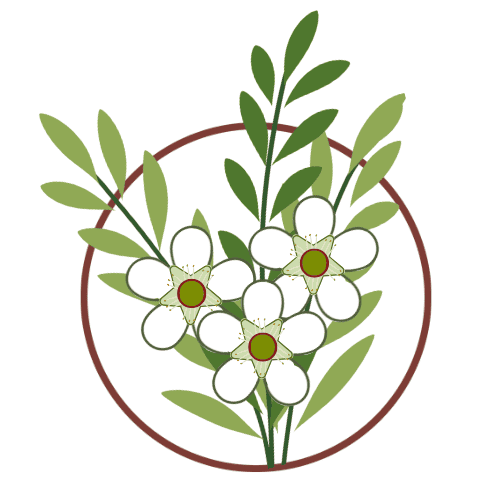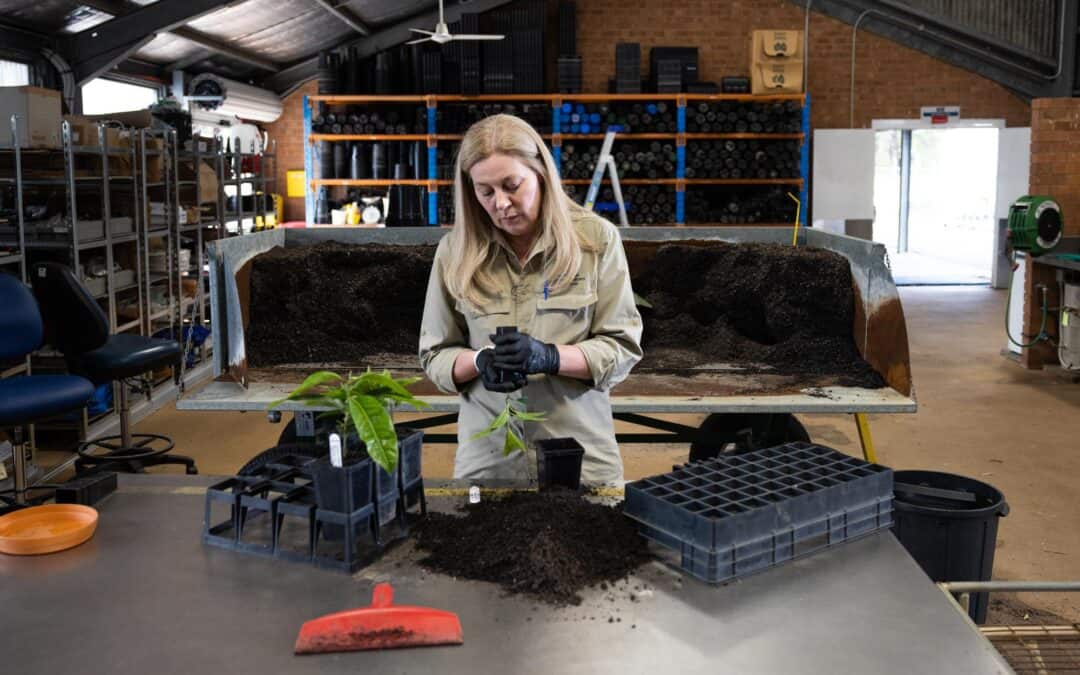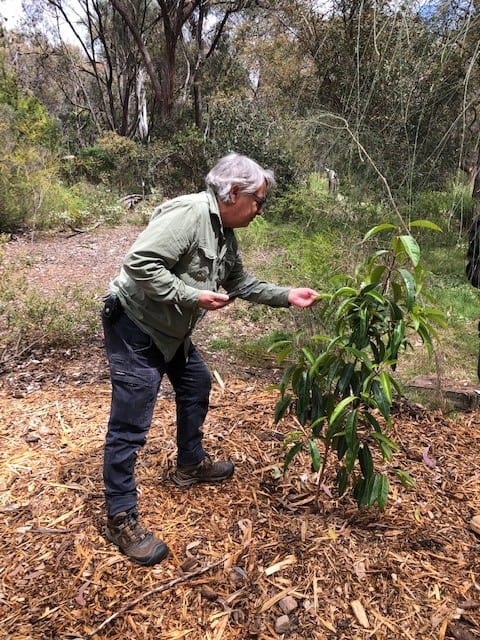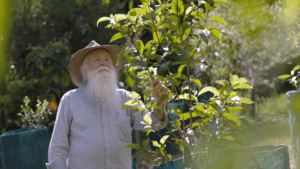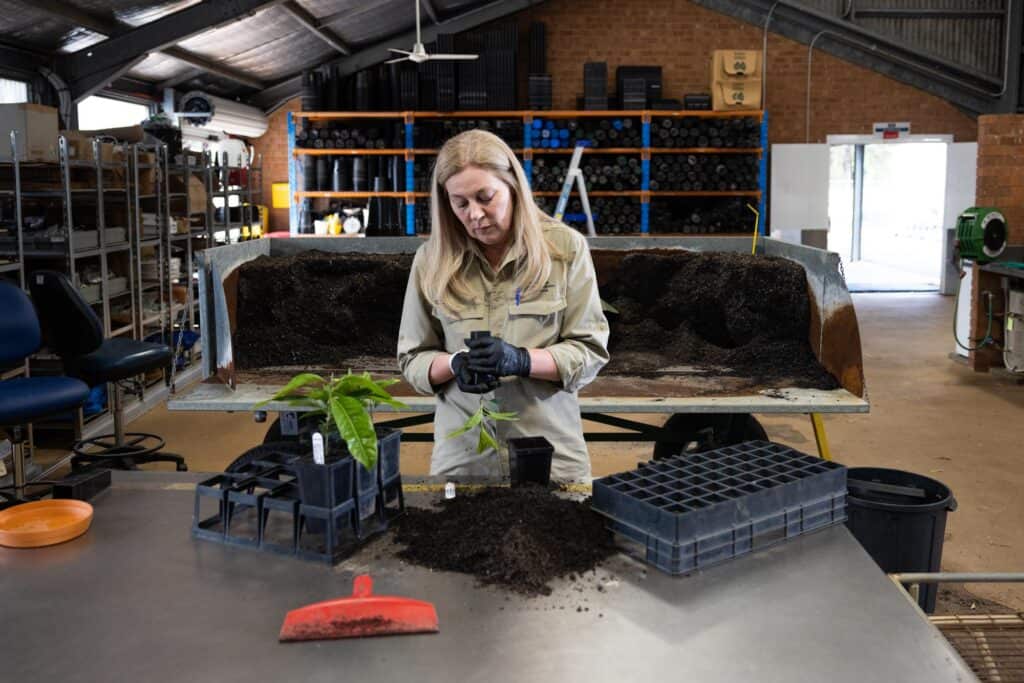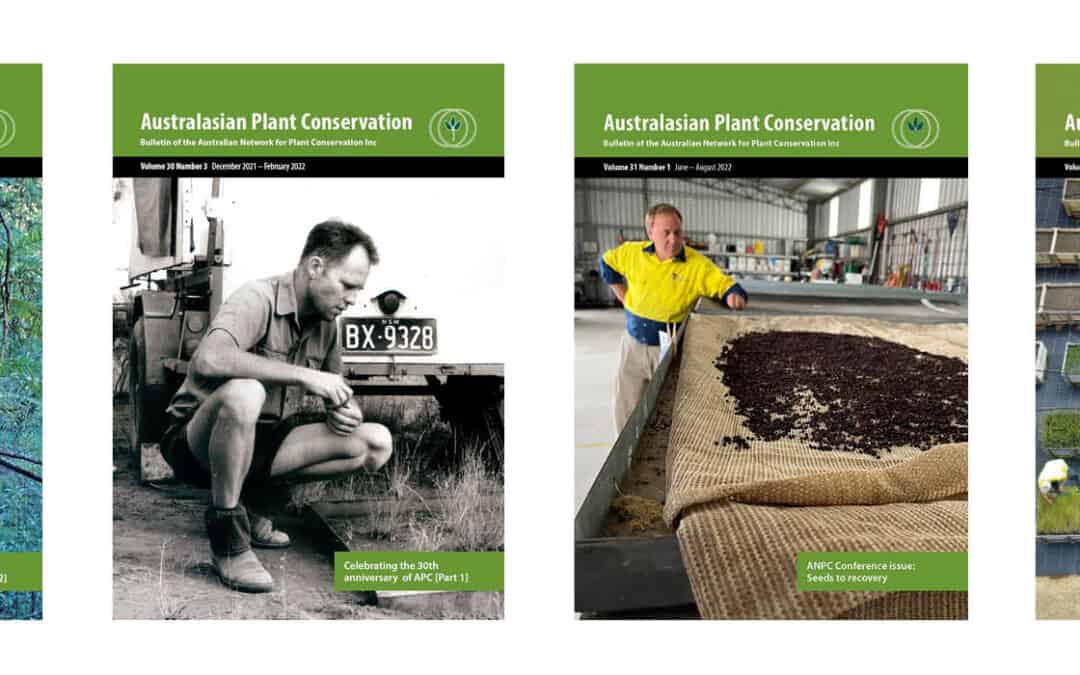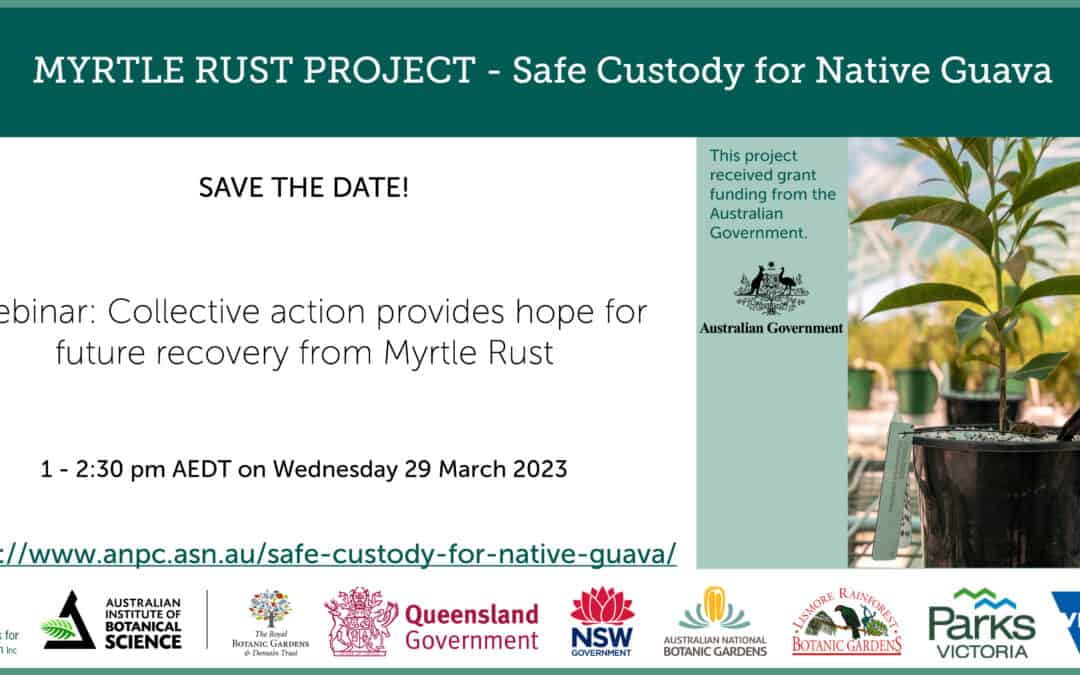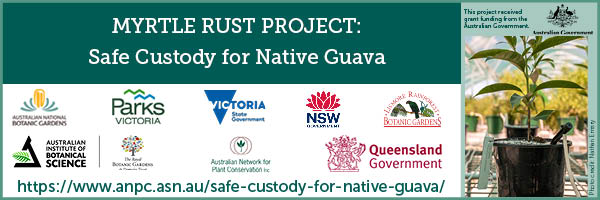
May 2, 2023 | News
A recording of the webinar jointly hosted by the Botanic Gardens Australia and New Zealand (BGANZ) Collections and Records Management group (BCARM), with speakers from the Australian Network for Plant Conservation (ANPC) and the Australian Seed Bank Partnership (ASBP) is now available.
Key takeaways and further information:
Bob Makinson gave an introduction to Myrtle Rust and talked about how Myrtle Rust kills, including its devastating impact on Native Guava (Rhodomyrtus psidioides). He talked through scenarios for different species, including management options, and the long term vision for identification and breeding of resistant genotypes. More info: Myrtle Rust information hub; and Extra slides with key facts, details of host species, and references
Amelia Martyn Yenson shared a new video on the collaborative action providing hope in the face of rapid decline and outlined key project activities to secure collections of Native Guava. Hear about collection of germplasm to preserve genetic variation, propagation of Native Guava collections, and planting of collections in botanic gardens of all scales. Peter Gould and the volunteers of Lismore Rainforest Botanic Garden walked us through their Native Guava collection. Zoe Knapp talked about the benefits of the project including hands-on experience for staff using digital technology, the ability to use living collections for research and education, and the importance of sharing information and using an agreed approach to establish collections. More info: Safe Custody for Native Guava
Bradley Desmond (Acting National Coordinator, Australian Seed Bank Partnership) outlined preliminary results of last year’s stocktake of Myrtaceae collections. The Council of Heads of Australian Botanic Gardens (CHABG) and BGANZ undertook the first country-wide stocktake of Myrtaceae insurance populations, with thanks to the 29 facilities and their staff who shared data. Many facilities are actively monitoring for Myrtle Rust, and respondents shared whether Myrtle Rust had been observed nearby (within 5km). Existing collections of wild sourced species include both whole plants (>13000 accessions) and seed (>8000 accessions). Many priority species identified in the National Action Plan are already established ex situ, with gaps identified to guide future collections. Stay tuned for the final report, via the CHABG website (chabg.org.au) and BGANZ (bganz.org.au).
We’d like to thank our partners for their generous support and commitment to the future of the Native Guava:
This project is supported by funding from the Australian Government.

Apr 24, 2023 | Media Releases, News
Native Guava (Rhodomyrtus psidioides) was a common and widespread native plant before Myrtle Rust was introduced to Australia in 2010. However, this native rainforest tree has suffered catastrophic declines as a result of this pathogen.
Few adult trees now survive, and the species is mainly hanging on through old root systems that put up annual suckers, which are also killed by Myrtle Rust.
Because of this, Native Guava is now listed as Critically Endangered under Commonwealth, New South Wales and Queensland legislation. It is one of 30 priority plant species listed in the Australian Government’s Threatened Species Strategy Action Plan 2021-2026.
The Australian Network for Plant Conservation has led the ‘Safe Custody for Native Guava‘ project over the past 12 months. We wanted to create more robust insurance collections of this species and show how a cross-State response could conserve the species.
Dr Amelia Martyn Yenson, who led this project, believes working together was essential when piloting a dispersed-custody model.
“Sharing the responsibility of caring for Native Guava plants means there is less risk of losing valuable genetic diversity; it’s also been an effective way to share information about Myrtle Rust, its impact and management.”
The ANPC has been at the centre of attempts by concerned scientists and conservation practitioners to develop a coordinated and funded national response to Myrtle Rust.
The recent outbreak of Myrtle Rust on Lord Howe Island, a World Heritage Area, has highlighted the urgency of protecting native plants from extinction.
-ends-
The Australian Network for Plant Conservation Inc. (ANPC) is a not-for-profit organisation that promotes and develops plant conservation in Australia.
For more information please contact:
Bob Makinson, ANPC Outreach Delegate and Myrtle Rust team member
Phone number: 0458 411 055
Email: Robert.Makinson@environment.nsw.gov.au

Phil Hurle monitoring plants at the Australian National Botanic Gardens (Credit Zoe Knapp)

Peter Gould with Native Guava at Lismore Rainforest Botanic Garden (Credit Michael Lawrence-Taylor).

Veronica Viler propagating plants at the Australian Botanic Garden Mount Annan (Credit Michael Lawrence-Taylor)

Apr 3, 2023 | News
Do you have a great photo from the field, nursery, garden or lab? We’d love to share it in our new “Photos from…” section in Australasian Plant Conservation. This is your chance to capture a project highlight, show what’s growing in the garden or flaunt that scenic field work location.
We’re looking for one high resolution photo (preferably 300ppi) with a 1-2 paragraph summary to highlight what’s happening around Australia in plant conservation. Submission deadline for the winter issue is Monday 1 May. Send your images and captions to APC editor Nathan Emery at editor@anpc.asn.au
To learn more about submission types and guidelines for our bulletin please visit our recently updated webpage

Apr 3, 2023 | News
1 – 2:30 pm AEDT Wednesday 29 March 2023
Held on Teams, Click here to join the meeting at 1pm AEDT on Wednesday 29 March 2023
Myrtle Rust is known to infect close to 400 species of the Myrtaceae plant family in Australia, with a range of impact from minor to devastating. In the latter category is the rainforest tree Native Guava (Rhodomyrtus psidioides). However, collective action provides hope for future recovery.
An upcoming webinar, jointly hosted by the Botanic Gardens Australia and New Zealand (BGANZ) Collections and Records Management group (BCARM), with speakers from the Australian Network for Plant Conservation (ANPC) and the Australian Seed Bank Partnership (ASBP), will report on two recent projects directed at saving this and other species from imminent extinction.
In this webinar, you will hear from Bob Makinson and Amelia Martyn Yenson (ANPC) about the impact of Myrtle Rust on Native Guava and take the first look at our new video on the collaborative action providing hope in the face of rapid decline. This project is supported by funding from the Australian Government.
We’ll also hear from Bradley Desmond (Acting National Coordinator, ASBP) about an inventory of priority Myrtaceae species held in ex situ collections across Australia and New Zealand. The Council of Heads of Australian Botanic Gardens (CHABG) and BGANZ undertook the first country-wide stocktake of Myrtaceae insurance populations, to understand the ex-situ representation of this Myrtle Rust affected family, and inform strategic planning, management and research.

Mar 2, 2023 | Events Category, News
| Myrtle Rust is known to infect close to 400 species of the Myrtaceae plant family in Australia, with a range of impact from minor to devastating. In the latter category is the rainforest tree Native Guava (Rhodomyrtus psidioides). However, collective action provides hope for future recovery. An upcoming webinar, jointly hosted by the Botanic Gardens Australia and New Zealand (BGANZ) Collections and Records Management group (BCARM), with speakers from the Australian Network for Plant Conservation (ANPC) and the Australian Seed Bank Partnership (ASBP), will report on two recent projects directed at saving this and other species from imminent extinction. In this webinar, you will hear from Bob Makinson and Amelia Martyn Yenson (ANPC) about the impact of Myrtle Rust on Native Guava and take the first look at our new video on the collaborative action providing hope in the face of rapid decline. This project is supported by funding from the Australian Government. We’ll also hear from Bradley Desmond (Acting National Coordinator, ASBP) about an inventory of priority Myrtaceae species held in ex situ collections across Australia and New Zealand. The Council of Heads of Australian Botanic Gardens (CHABG) and BGANZ undertook the first country-wide stocktake of Myrtaceae insurance populations, to understand the ex-situ representation of this Myrtle Rust affected family, and inform strategic planning, management and research.
Click here to join the meeting at 1pm on Wednesday 29th March. |

